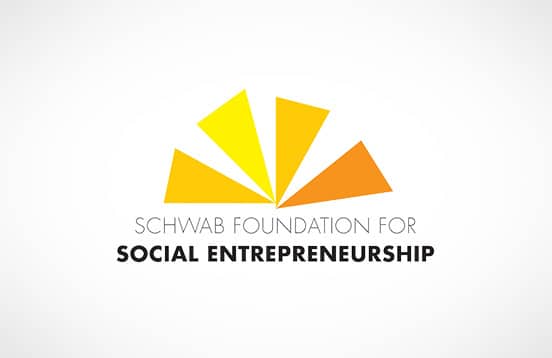- The Social Innovation Awards recognize leaders, and social and environmental change initiatives that have the potential to respond to the complex problems facing our world. In 2023, the Schwab Foundation awarded WIEGO in a new category on Collective Social Innovation, which recognizes organizations demonstrating new models of collaboration and the growing importance of platforms for grassroots action.
- WIEGO is a global network dedicated to improving the working conditions, rights, protection, economic opportunities and voice of the working poor, particularly women, in informal employment.
Women in Informal Employment: Globalizing and Organizing (WIEGO) has been recognized at the World Economic Forum, winning the Social Innovator of the Year 2023 Award*, at the Schwab Foundation Social Innovation Awards, for its leading work addressing the complex issues facing the world’s two billion workers in informal employment.
WIEGO was one of 16 organizations to win an award from the Schwab Foundation this year. WIEGO is one of the first organizations to be awarded in the category of Collective Social Innovation which recognizes organizations demonstrating new models of collaboration and the growing importance of platforms for grassroots action. WIEGO is being represented collectively as an awardee by Dr. Sally Roever (International Coordinator of WIEGO), Janhavi Dave (International Coordinator of HomeNet International) and Lorraine Sibanda (President, StreetNet International) and will join the Schwab Foundation’s global community of 435 social innovators operating in more than 190 countries, and be integrated into the World Economic Forum’s meetings and initiatives for a three-year period.
WIEGO’s International Coordinator, Dr Sally Roever, says the organization is honoured to receive the award. “At WIEGO, we advocate for fairer incomes and better working conditions for workers in the informal economy: the people who feed our cities, stitch our garments, keep waste out of our oceans and care for our young and old. We bring these workers and their democratic, representative organizations together with researchers, statisticians and policymakers to take collective action to change the systems that fail to see them and fail to value them”. Dr Roever declares that workers are agents of change: “They are the women and men who are driving the future of work: whether it’s a domestic worker negotiating an international labour standard to protect their rights or women who stitch garments in their homes making sure they are counted in government statistics. Collective innovation for us is about rewriting the rules of the game. That’s the future of work we need to be talking about.”
Janhavi Dave, International Coordinator of HomeNet International, and member of WIEGO, explains the scope of the work WIEGO has developed for the last 3 decades: “We are dedicated to improving the working conditions, rights, protection, economic opportunities and voice of all the working poor, particularly women, in informal employment”.
Lorraine Sibanda, President of StreetNet, also a member of WIEGO, states that informal employment is an important contributor towards any country’s economy. And if a country is to prosper or grow its economy, it has to embrace workers in informal employment. “The informal economy endeavours,” she says. “Support them. Grow them. And bring them to formality, so they can contribute in a more sustainable manner towards the economy.”
François Bonnici, Director of the Schwab Foundation for Social Entrepreneurship, says the awardees this year show new models of collaborating across sectors using technology, human networks, and shared resources and knowledge. “Many social innovators have a long history of working in collaboration with others. The ambition now is in creating systemic change through collective efforts,” he states.
The Schwab Foundation, which is the sister organization to the World Economic Forum, has created the new Collective Social Innovation award to recognize the work of organizations, such as WIEGO, coming together to address complex problems that cannot be tackled by individual actors. The Schwab Foundation remarks the COVID-19 pandemic has underscored the importance of collectives, due to their ability to provide grassroots support to vulnerable groups across multiple sectors. For more information on the award categories and nominations, visit www.schwabfound.org
For interviews or further information, please contact: Nicole Pryor - nicole.pryor@wiego.org, Graciela Mora - graciela.mora@wiego.org
Editor’s Notes:
Women in Informal Employment: Globalizing and Organizing (WIEGO) is a global network focused on empowering the working poor, especially women, in the informal economy to secure their livelihoods. We believe all workers should have equal economic opportunities, rights, protection and voice. WIEGO promotes change by improving statistics and expanding knowledge on the informal economy, building networks and capacity among organizations of workers in informal employment and, jointly with the networks and organizations, influencing local, national and international policies.
*Being an awardee does not come with a financial reward, rather it enables WIEGO’s access to the World Economic Forum’s meetings and initiatives for a three-year period. We aim to use the space to raise the concerns and demands of workers in informal employment with participating representatives from government, the private sector, trade unions and civil society.
